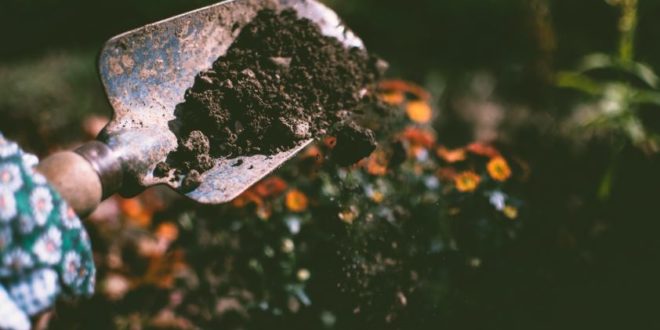When most people think of gardening, they automatically think of it as an eco-friendly activity. Unfortunately, that’s not always the case. The use of chemicals and the disruption of the natural ecosystem can be more harmful than helpful.
Fortunately, with some eco-savvy tips and tricks, you can ensure that your garden is giving back to the natural world rather than taking away from it. Here are five wonderful eco-friendly gardening ideas.
Reduce Your Carbon Footprint While Gardening
When gardening, try to limit your use of machinery as much as possible. Take this as an opportunity to get in a great workout while engaging in a fun activity outside. Opt for a shovel and wheelbarrow over a tractor when reasonable. You can browse through Easy Digging to find hand-propelled tools that will make your job a little easier.
The same applies to the use of chemicals and altering the composition of the soil. Try to avoid peat-based additives when possible and leave chemicals on the store shelves where they belong. There are a lot of natural weed and pest deterrents, some of which will be covered below. If all else fails, pulling weeds by hand is a great excuse for skipping the gym.
Another way to reduce your carbon footprint is by harvesting rainwater rather than watering your garden with a hose. Set up your gutters to drain into a rain barrel and repurpose this water for your garden.
Create a Habitat for Biodiversity
There are many personal benefits to growing a garden. If you opt for a flower garden, you improve the resale value of your home and spend your days surrounded by beauty. If you grow a vegetable garden, you get the enjoyment of knowing exactly where your fresh produce comes from.
You should also think of how you can benefit the creatures that live around you. Create a habitat for biodiversity by planting flowers that attract bees and butterflies. You can even put up bee sanctuaries to give these important creatures respite during their long days of collecting nectar.
You’ll also want to put up a few bird feeders to attract you are fine feathered friends. There are plenty of bugs– ladybugs, for example– that eat plant-destroying pests. Birds are always looking for a snack beside seeds and will help control the pest population as well. By creating a biodiverse garden, you reduce the need for pesticides.
Compost and Recycle
Rather than rushing out to purchase new things, thus adding to the disposable plastic problem, try to recycle whenever possible. Using egg cartons as seed starters keep a versatile vessel from ending up in the garbage. Hitting thrift shops for old posts and decor reuses items that were going to waste and cuts back on your budget.
Food scraps should also be reused in the form of compost. If your area doesn’t have a composting program, build a bin in the backyard. Put your food scraps in the compost and create your own blend of organic food to help your plants grow. Avoid putting meat scraps in the compost if you’re in an area where predators are a concern.
Use Strategic Companion Planting
There are lots of plants that grow better when planted with a companion. The Native Americans of old were known for planting “The Three Sisters” together: beans, corn, and squash. Cornstalks give the beans a place to climb, beans convert nitrogen in the soil which corn needs to grow, and the squash leaves protect the base of the plants from evaporation and weed growth.
Planting marigolds, tomatoes, and basil together creates an aromatic atmosphere that pests hate. Onions and chives can be planted with roses or tomatoes to keep pests and rot away. Carrots and leaks detract each other’s pests. Your plants, like people, get by with a little help from their friends.
Opt for a Natural Style Garden
Rather than concerning yourself with having a pristine, clean garden, opt for a natural, wild look. Don’t try to make plants grow where you want them. Instead, assess the area and find plants that will thrive in that environment.
For example, if you have a shadowy, damp area in your yard, look for plants with dark leaves, like bleeding hearts and trillium. For sloping areas, plant a burning bush or creeping juniper to help with erosion control.
Rather than cleaning up all the debris, allow sticks and plant matter to break down where they are so that they feed the soil naturally and attract helpful bugs. Give the plants room to expand and grow on their time. There’s beauty in wild things if you learn to appreciate them for what they are.
Working with the environment you have rather than trying to go against the grain will encourage growth, reduce rot and disease, and create a private paradise you can enjoy.
Gardening is an activity that, when done correctly, can be refreshing mentally and physically, improve the value of your home, and benefit the world around you.



